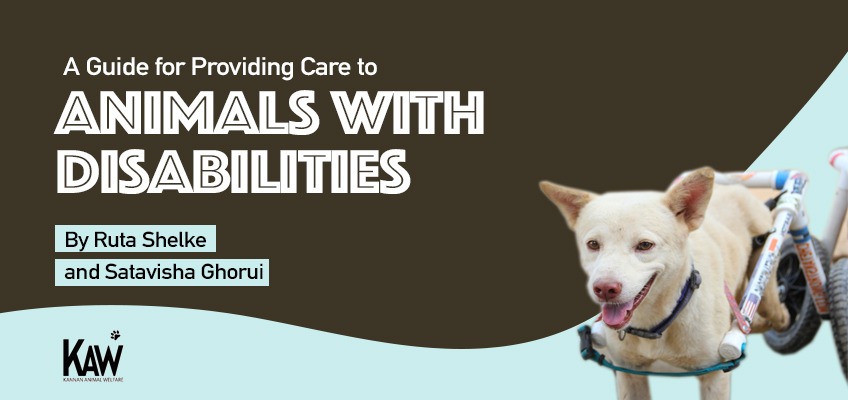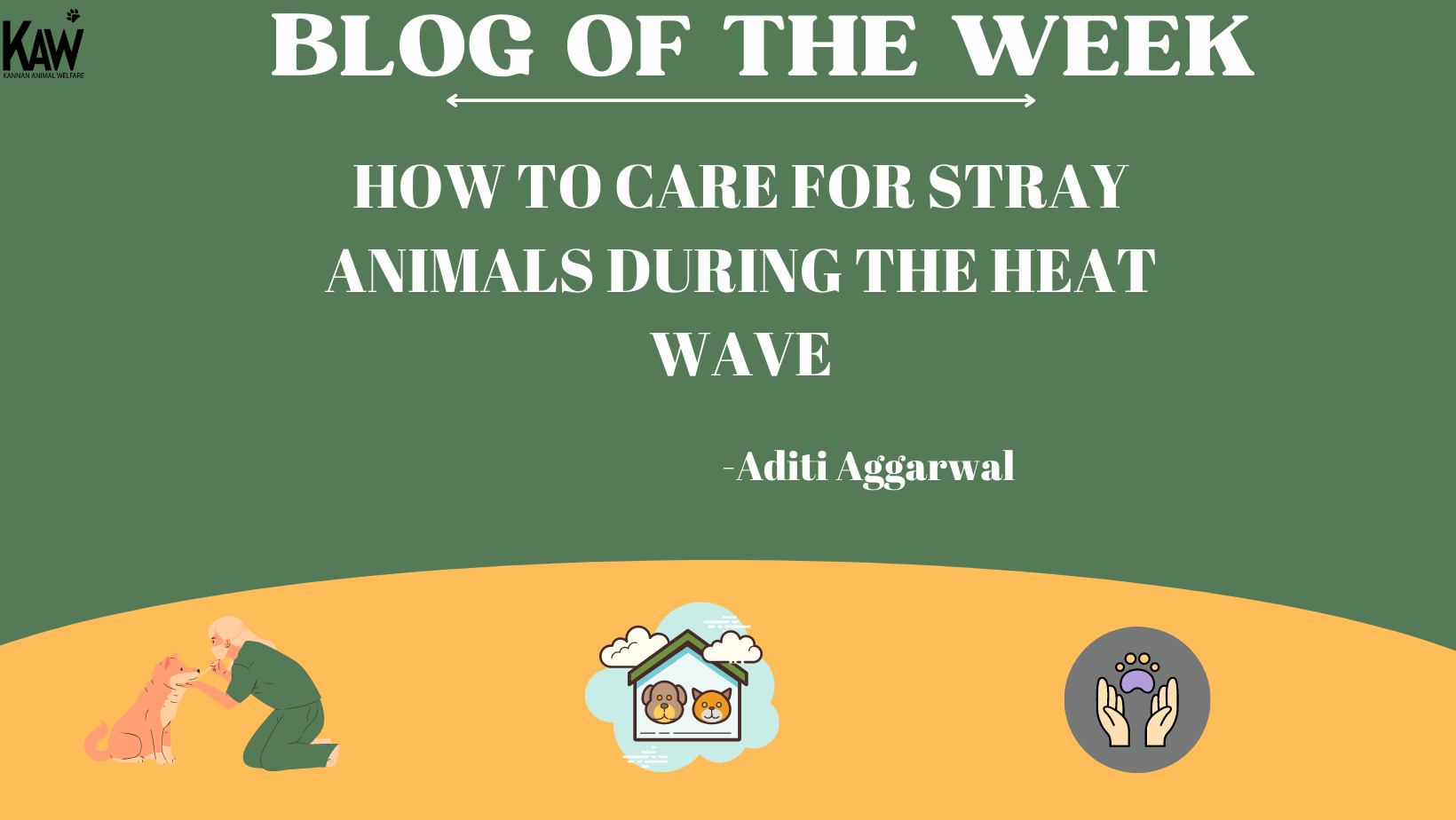A Guide for Providing Care to Animals with Disabilities
By Ruta Shelke and Satavisha Ghorui
We are living in a time where both animals and their caregivers are blessed with increased life expectancy due to better sources of food and nutrition, vaccination, safer and cleaner living conditions and advanced medical treatments. While all of this has served to improve quality of life, there is still a great need to protect them from infections and preventable diseases. Not many people acknowledge or are well-informed about animals with disabilities, and the care they require. Disabilities may arise due to genetic factors or birth defects, loss of limbs due to accidents, health complications (like paralysis), or physical conditions such as blindness and deafness that develop as our furry friends approach their senior years.
Looking after a special needs pet involves serious involvement and important responsibilities. It’s vital that you consider your range of duties and exercise self-care in order to ensure that you can provide your pet with a positive and a nurturing environment. Although the task might seem challenging, families say the rewards outweigh the work! Here is a guide to help you support your furry companions with disabilities:
Maintain a Routine
The first and best piece of advice, when it comes to caring for disabled pets, is maintaining a daily routine! By cultivating good habits and getting into a routine, it will become easier for you to stay motivated as a caregiver for a pet with special needs. Over time, this continual practice will get incorporated naturally into your daily activities, since the situation is quite similar to taking care of an infant. However, remain as consistent as possible with the timings you set. For example, wake up at 8am, walk at 8:30am, have breakfast at 9am, and bladder expression at 12pm.
Get a Second Opinion
“Dora will never be able to walk or groom herself ever again!”
A lot of disabled pets are often written off as lost causes, unless you choose to challenge the opinion. Don’t just take the word of your peers or family vet as gospel. Instead, seek out the opinions and diagnosis of a neurological, behavioral or other specialists. They will be able to offer a different outlook and approach with innovative solutions or treatment plans that your veterinary generalist cannot.
Although these consultations may cost more, the information gained will give your pet a much better quality of life. Your pet’s treatment will also offer these specialists valuable experience and knowledge of what works and what doesn’t when it comes to treating future pets – and possibly humans – with similar conditions!
Balance Fun and Caution
Observe your furry companions and note how they react to certain stimuli. Take them for regular walks whenever possible, and let them move around freely to get familiar with their surroundings. Encourage them to be physically active as much as possible, since this will make your pet less cranky (usually due to long hours of idleness in confined spaces). You can also baby-proof your house for safety purposes. Lastly, don’t forget to add a spoonful of cuddles!
Schedule Regular Vet Visits
If there is anything you are unsure about when it comes to the daily care of your pet, ask your vet. For example, whether it’s more convenient to use a diaper, or is it safe to express the bladder ourselves. Regular visits to the vet will not only ensure proper health for your companion, but will also get you important analysis and feedback on the outcome of the work that you're putting behind your pet. Never be afraid to ask questions!
Get The Right Gear or Physical Support Tools
There is often the common issue of lack of resources for caregivers with pets that are disabled or injured and need special care. So, be aware of your pet's exact nature of disability and check for injuries frequently. Especially in cases of paralysis, the canine may not immediately sense the injury due to loss of feeling. Additionally, immobility or incontinence can lead to sores, with partially paralyzed pets frequently getting carpet-burns leading to much discomfort and skin abrasions. In such scenarios, mobility gear such as adjustable pet-wheelchairs, heavy-duty “drag bags,” or harnesses for carrying your pet are really useful. Get in touch with a pet-store like Handicappedpets.com to look for similar solutions!
Find a Support Group
A caregiver’s emotional health matters too, as caring for disabled pets is a unique experience. You may feel like you’re the only one dealing with these situations, but you don’t have to feel that way! A little heart-to-heart talk goes a long way.
Connect with people who might be going through similar situations via online discussion forums, such as Walkin’ Pets, or social media groups related to disabled pets. This will not only provide you access to hands-on advice, but also help you relate to others. Empathy is the key for being more caring, patient, and kind - all crucial qualities for caregiving! There is a huge community out there with disabled pets, and the connections you form will remain close to you.
Remember to be Patient with Yourself and Your Companion
Mistakes will happen! But you must try to remain as calm as possible with yourself and your pets. Don’t punish them if they have a leak unknowingly or if they create a mess. Take each day as it comes; patience is key. Remember, your companion needs your love more than your efficiency!
Perseverance, patience, and dedication go a long way when it comes to taking care of companion animals with disabilities. We must remember that a positive result may not always happen overnight. The ultimate goal for caregivers in such situations should hence be to not only try and solve the issue, but also facilitate our furry friends to traverse smoothly through life and adapt to new circumstances.
What You Learn
There is nothing that will teach you about the joys of life and appreciating the little things, like taking care of a disabled pet. When well cared for, they are happy and well adjusted to their situation- they make the most of it, and don’t know they’re any different from others. Having a great quality of life doesn’t mean that life has to be perfect, it means it’s worth living! Lastly, a few words of wisdom for all by Roger Caras, “Dogs are not our whole life, but they make our lives whole.”






